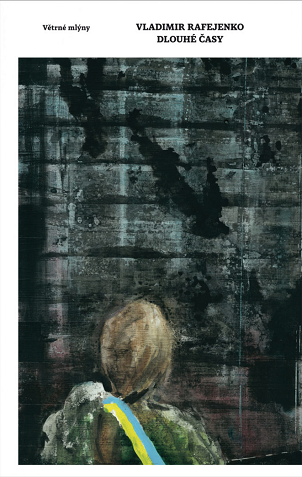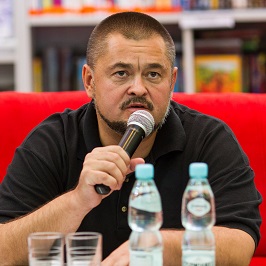


It is better to believe everything than nothing, says Rabbi Nachman at the end of the book. Through this sentence, one can approach the whole novel, whose style is simply consistent realism, which more authentically reflects the author’s perception, rather than magical realism. After all, how to express the reality of the war and report on what is happening in the city of Z, easy to recognize as Donetsk, which lies closer than we would like to admit. Time and space are distorted. Death is a means of travel here. Ghosts appear in the streets. Colorado potato beetles appear in large quantities and no one is really safe even in the city spa. Then it is possible to believe that the war can be stopped by scratching the right paws and bellies.
Published by Větrné mlýny, 2019

©Rafał Komorowski
Vladimir Rafejenko (* 1969) is a Ukrainian novelist and poet. He started writing in the army in order not to go crazy, but his books were not published until the end of the 1990s. To support his family, he wrote over forty other books under different names. Until recently, the language of his work was Russian. Critics compare his phantasimagorical style to Gogol, Bulgakov or Garcia Márquez. In the spring of 2014, he had to leave his native town of Donetsk, and then settled in Kiev.
by Františka Bakošová.
By continuing to browse this website, you agree to the use of cookies. more information
The cookie settings on this website are set to "cookies enabled" to provide you with the best possible browsing experience. By continuing to use this website without changing your cookie settings or by clicking on the "Agree" button, you agree to the terms of use of cookies.